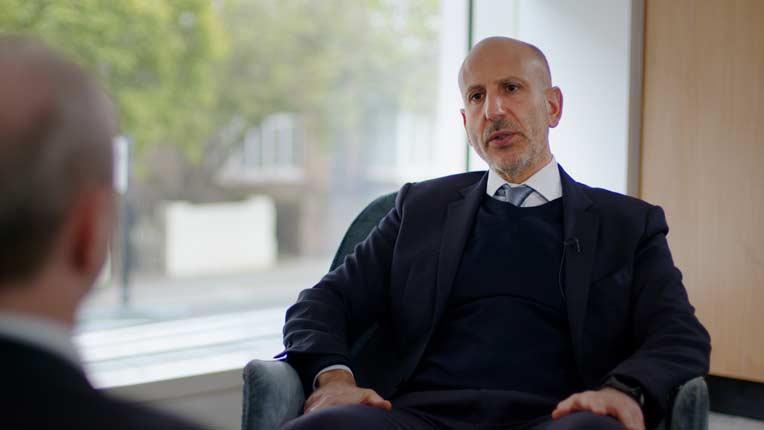When financial historians look back on the spring of 2009, don't be surprised if this time period stands out as a not-so-bright one in the annals of US capitalism. This is not just because the country, and the world for that matter, is dealing with an extremely severe pullback in economic output. Downturns happen in the normal course of economic growth and occur from time to time as the free market cleans out excesses created in each prior cycle. More distressing is the manner in which the long-standing US bankruptcy law was recently usurped so that a group of junior creditors (with strong political connections) of a high-profile automaker were made more 'whole' than the senior creditors--all in plain sight and in the name of fairness and sacrifice.
I'm talking, of course, of recent events at Chrysler, and more specifically, of a decision by the current US administration that helps more than 100,000 workers and retirees in the short term but may well be harmful to countless others over the long term. The reason? The cost of capital for a whole host of US businesses just went up.
Chrysler and creditors
First, some background. At issue in the Chrysler case are the first-lien
creditors who, by several accounts, were strong-armed into accepting
roughly $2 billion for the $6.9 billion owed to them in the
well-publicised government-backed reorganisation plan. This works out at
less than $0.30 on the dollar for the creditors that stand at the very
top of the Chrysler capital structure. At the same time, the United Auto
Workers' Voluntary Employee Beneficiary Association, which sat in an
unsecured position going into the current situation, is slated to
receive $4.6 billion against a $10.6 billion lien in the form of a 9%
note maturing in 2022. As an extra sweetener the VEBA also will get a
55% stake of the reorganised company. That works out to about $0.43 on
the dollar, not counting the equity kicker that could make the union
completely whole or even better in the unlikely event that Chrysler
attains its former glory as a topnotch automaker. Long story short, a
junior creditor was able to leap the senior-most creditor and in the
process make a mockery of longstanding US bankruptcy law.
This is a big deal and highly problematic. The United States has been the envy of the world since the beginning of the industrial revolution for several reasons, not least of which is a system based not on fairness but the rule of law. This means that senior-secured status should mean something. Specifically, it should mean that a senior lender can feel comfortable it will get first crack at the assets in a liquidation or an equity stake in a reorganisation. It should mean that investors can safely execute their fiduciary responsibility to their own stakeholders, even if it's perceived at the time not to benefit society as a whole. Finally, it should mean that even if a group of lenders were major contributors to a global economic meltdown and are currently receiving government funds, they shouldn't be bullied into accepting a deal they wouldn't otherwise have accepted had they been in a more politically palatable position (as is currently the case for those Chrysler creditors that are receiving Troubled Asset Relief Program funds).
Economic effects
The US capitalist system has worked like no other in the world
throughout the last couple of centuries in part because investors and
lenders could be confident in the sturdiness of the agreements struck
between lenders and creditors. Secured creditors take less risk than
subordinated creditors, subordinated creditors take less risk than
preferred shareholders, and preferred shareholders take less risk than
equityholders. In turn, secured creditors can naturally charge less
interest, knowing that they get first crack at the assets should any
unforeseen difficulties arise. As a result of this unbending attitude
toward contracts, US-based companies have generally enjoyed one of the
lowest costs of capital throughout the world (in aggregate) in return
for adhering to a strict set of protocols in both good times and bad.
Unfortunately, these near-sacred concepts were turned on their heads in the Chrysler case, and capitalists have no choice but to sit up and take notice. What may have been a secure position pre-Chrysler may not be so today, and for that society might pay a price in the form of higher future risk premiums assigned to the secured debt of many US companies.
We understand that the current situation calls for action on a scale virtually nobody but the federal government can handle. Likewise, the government should be rightfully able to call the shots. At the same time, however, we feel the government set a bad precedent by reshuffling the order in which creditors are served.
A properly functioning financial market depends to a large degree on confidence and, as the events of the last year have shown, operates very poorly without it. The United States, by and large, has enjoyed unparalleled capital flows to our great companies precisely because global investors believe its system allows them the highest odds of success and, importantly, the best chances of recovery in the event things don't pan out. We applaud the US administration for trying to tackle the giant problem that is the American automotive industry but wish it had taken perhaps a more constructive role with regard to the secured creditors. In our opinion, the decisions surrounding Chrysler haven't done much to engender continued confidence in the US legal system, one of the country's biggest competitive advantages.
























